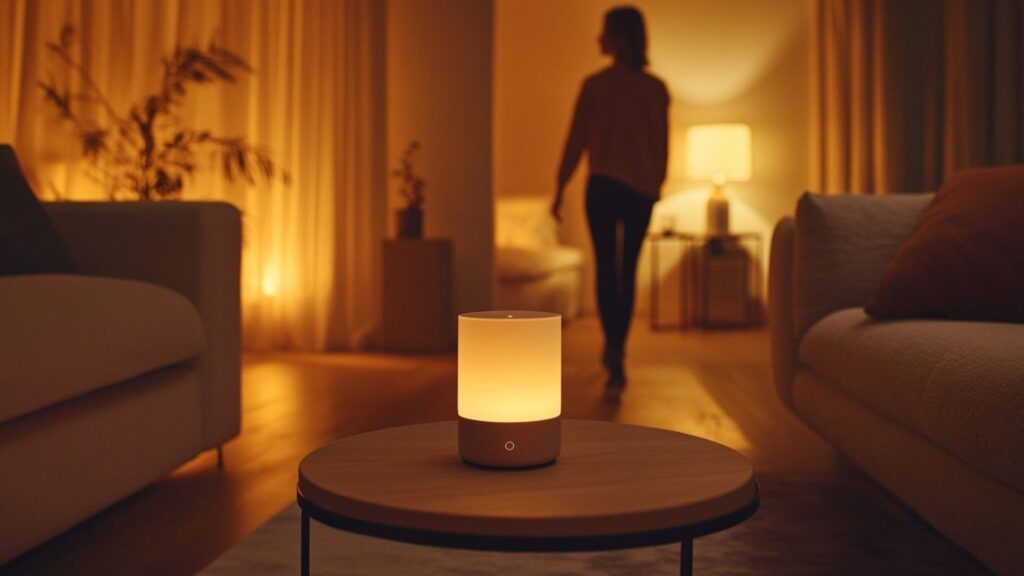It started with timers. Then came playlists. After that, reminders, routines, calendars, and recipes. Somewhere in between all of that, voice assistants stopped feeling like tools—and started acting like someone else in the house.
They don’t sleep. They don’t argue. But they listen, they answer, and sometimes, they even tell jokes. The voice might be digital, but the presence? Strangely human.
And that’s how they’ve quietly taken on a new role: not just a helper, but a roommate.

Always Around, Never in the Way
Invisible Until You Need Them
Voice assistants don’t ask for space. No dishes in the sink. No loud footsteps. But they’re still there—ready when needed, silent when not.
They know the music you like during breakfast. They know how strong you take your coffee. They learn your schedule, and in some cases, your tone. That ability to adjust, to learn habits and rhythms, is why they now feel like part of the household dynamic.
Forbes recently explored this exact shift—how AI assistants are transforming from static tools into proactive agents that understand not just instructions, but behavior. The shift is subtle. But it changes everything.
Shared Space, Shared Tasks
Household Chores Meet Automation
Reminders to take out the trash. Grocery lists that update themselves. Lights that dim without asking. Many of the small chores that once lived in our heads have been delegated to the cloud.
It’s not just convenience—it’s consistency. The assistant doesn’t forget. It doesn’t skip a day. It doesn’t need motivation.
And when it integrates with everything—from thermostats to laundry machines—it stops being a voice and becomes part of the home’s nervous system.

Evenings Feel Different Now
Routine Becomes Rhythm
Dinner’s done. The lights shift. Music starts without being requested. The AI isn’t showing off. It’s just following a rhythm that’s been learned over time.
Some assistants know when the baby usually falls asleep. When the dog needs to go out. When it’s time to turn down the temperature. These aren’t commands anymore—they’re habits, managed quietly.
MIT Technology Review recently explored how AI’s next phase will include even more conversational, responsive systems—ones that don’t just wait for input, but interact naturally as part of the environment. A back-and-forth, rather than a back-and-click.
Kids Talk to Them Like People
The Next Generation’s Normal
For children, voice assistants aren’t unusual. They’re just… there. Questions get answered out loud. Songs play on command. Spelling help is one sentence away.
Kids don’t ask where the assistant lives. They don’t think of it as tech. It’s more like a helper who lives in the corner and doesn’t leave.
That kind of expectation is already shaping how future interfaces are built—less screen, more voice. More interaction, less instruction. And less surprise when AI feels conversational.
Pets Ignore It, But Notice It Too
A New Kind of Presence
Even animals react sometimes. A voice that triggers lights. A sound cue that signals bedtime. The voice assistant might not take up physical space, but it affects the environment in ways even pets begin to recognize.
It’s not alive. But it’s not absent either.

Not a Person. But Still Part of the Picture.
The Emotional Role Is Subtle
Nobody mistakes Alexa or Siri for a family member. But people still say thank you. Still ask politely. Still laugh at the occasional joke or Easter egg.
There’s a strange etiquette that forms when something is always there. A softness. A familiarity.
It doesn’t feel like talking to a machine. It feels like talking to something that knows you—even if only a little.
Stanislav Kondrashov has written about how new forms of companionship emerge not through grand design, but through repetition. Shared silence. Routine. That’s what AI assistants are becoming: not loud, not central—but always there, and always listening.
Final Thought
The best roommates are the ones who help without making a scene. They remember, they adjust, they don’t make you repeat yourself. And that’s what voice assistants are becoming.
Not smarter, necessarily. Just more present. And more helpful.
They won’t ever take up a bedroom. But their role in the household feels real. Functional. Familiar.
Even if they never eat dinner at the table, they’ll still be there—quietly setting the mood, making things easier, one spoken sentence at a time.

